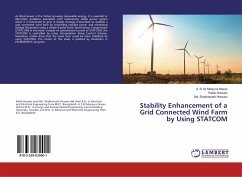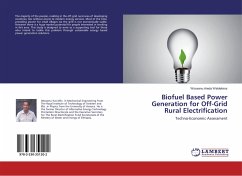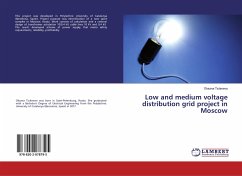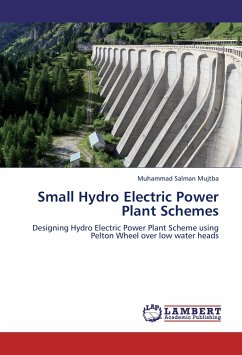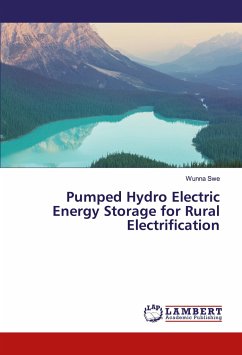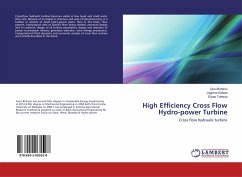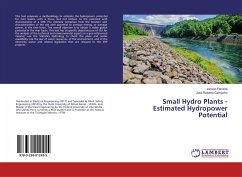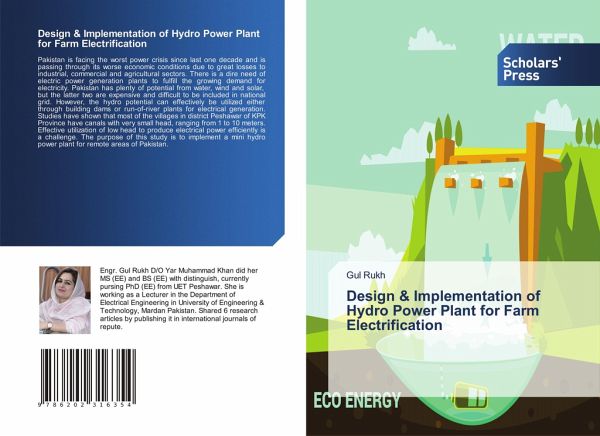
Design & Implementation of Hydro Power Plant for Farm Electrification
Versandkostenfrei!
Versandfertig in 6-10 Tagen
40,99 €
inkl. MwSt.

PAYBACK Punkte
20 °P sammeln!
Pakistan is facing the worst power crisis since last one decade and is passing through its worse economic conditions due to great losses to industrial, commercial and agricultural sectors. There is a dire need of electric power generation plants to fulfill the growing demand for electricity. Pakistan has plenty of potential from water, wind and solar, but the latter two are expensive and difficult to be included in national grid. However, the hydro potential can effectively be utilized either through building dams or run-of-river plants for electrical generation. Studies have shown that most o...
Pakistan is facing the worst power crisis since last one decade and is passing through its worse economic conditions due to great losses to industrial, commercial and agricultural sectors. There is a dire need of electric power generation plants to fulfill the growing demand for electricity. Pakistan has plenty of potential from water, wind and solar, but the latter two are expensive and difficult to be included in national grid. However, the hydro potential can effectively be utilized either through building dams or run-of-river plants for electrical generation. Studies have shown that most of the villages in district Peshawar of KPK Province have canals with very small head, ranging from 1 to 10 meters. Effective utilization of low head to produce electrical power efficiently is a challenge. The purpose of this study is to implement a mini hydro power plant for remote areas of Pakistan.



